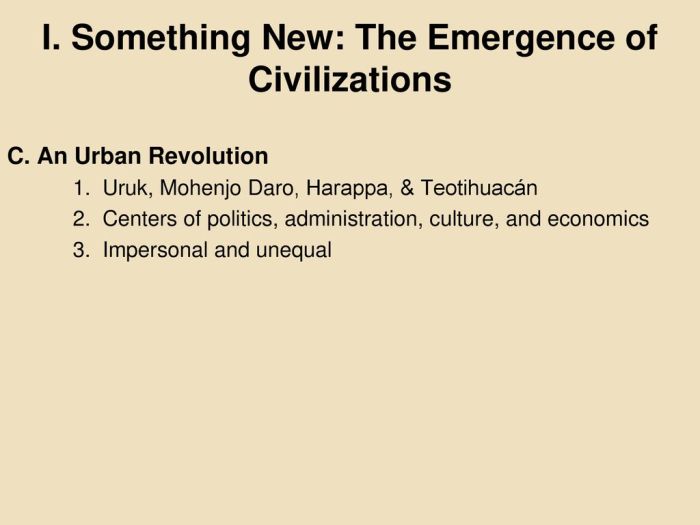Impersonal relationships are due to job specialization. This phenomenon has significant implications for social interactions, communication, organizational culture, and employee well-being. Understanding the causes and consequences of impersonal relationships in the workplace is crucial for organizations seeking to foster a positive and collaborative work environment.
Job specialization, while enhancing efficiency and productivity, can limit opportunities for personal connections and hinder the development of meaningful relationships. Specialized tasks and expertise can create barriers to effective communication, leading to misunderstandings and misinterpretations. Moreover, highly specialized work environments can contribute to a sense of isolation and fragmentation, negatively impacting employee morale and job satisfaction.
Impacts on Social Interactions: Impersonal Relationships Are Due To Job Specialization.

Job specialization can significantly limit opportunities for personal connections within the workplace. As individuals become highly specialized in their respective tasks, they tend to interact primarily with colleagues who share their expertise. This can lead to a lack of exposure to diverse perspectives and a reduced ability to develop meaningful relationships with those outside of one’s immediate workgroup.
For example, in a large software development company, a programmer may spend most of their time working on a specific software module, interacting only with other programmers responsible for related modules. This limited interaction with colleagues from other departments, such as marketing or sales, can hinder the programmer’s ability to understand the broader context of their work and to connect with individuals who have different skill sets and perspectives.
The psychological effects of working in a highly specialized environment can also impact individuals’ ability to relate to others. Over time, excessive focus on one’s specialized area can lead to a narrowing of one’s interests and a reduced capacity for empathy and understanding of those outside of one’s immediate circle.
Consequences for Communication

Job specialization can create communication barriers between colleagues, particularly when individuals have vastly different areas of expertise. Specialized tasks often require the use of technical jargon and specialized language, which can be difficult for those outside of the field to understand.
For example, in a medical research laboratory, a scientist may use highly technical terms to describe their research findings during a presentation. While other scientists in the same field may be able to comprehend the terminology, colleagues from other disciplines, such as administration or finance, may struggle to follow the discussion.
This lack of shared understanding can lead to misunderstandings and misinterpretations, hindering effective communication and collaboration. It can also create a sense of isolation and frustration among colleagues who feel unable to fully participate in discussions or contribute to decision-making processes.
Implications for Organizational Culture

Job specialization can have a profound impact on the overall organizational culture. When employees are highly specialized in their roles, they may develop a sense of isolation and fragmentation within the workplace. This can lead to a lack of cohesion and a reduced sense of shared purpose among colleagues.
For example, in a large manufacturing company, employees on the assembly line may have limited interaction with those in the design or marketing departments. This lack of cross-functional communication and collaboration can hinder the company’s ability to innovate and respond effectively to market changes.
A highly specialized workforce can also impact employee morale and job satisfaction. Individuals who feel isolated and disconnected from their colleagues may experience a lack of fulfillment and motivation in their work. This can lead to increased turnover and reduced productivity.
Strategies for Mitigation

| Strategy | Description |
|---|---|
| Cross-functional teams | Create teams that include individuals from different departments or areas of expertise to foster collaboration and knowledge sharing. |
| Interdisciplinary projects | Assign projects that require employees to work with colleagues from other disciplines, promoting exposure to diverse perspectives. |
| Regular communication channels | Establish regular communication channels, such as team meetings or company-wide newsletters, to keep employees informed about the work of other departments. |
| Training and development programs | Provide training and development programs that focus on improving communication skills and building relationships across different areas of expertise. |
FAQ Corner
How does job specialization affect social interactions in the workplace?
Job specialization can limit opportunities for personal connections and hinder the development of meaningful relationships. Specialized tasks and expertise can create barriers to effective communication, leading to misunderstandings and misinterpretations.
What are the consequences of impersonal relationships in the workplace?
Impersonal relationships in the workplace can lead to a sense of isolation and fragmentation, negatively impacting employee morale and job satisfaction. Communication barriers and misunderstandings can also hinder productivity and collaboration.
What strategies can organizations implement to mitigate the negative effects of job specialization on interpersonal relationships?
Organizations can implement strategies such as creating opportunities for interdisciplinary communication, teamwork, and cross-functional projects to foster collaboration and connection among employees. Additionally, promoting a culture of open communication and providing training on effective communication skills can help break down barriers and improve interpersonal relationships.